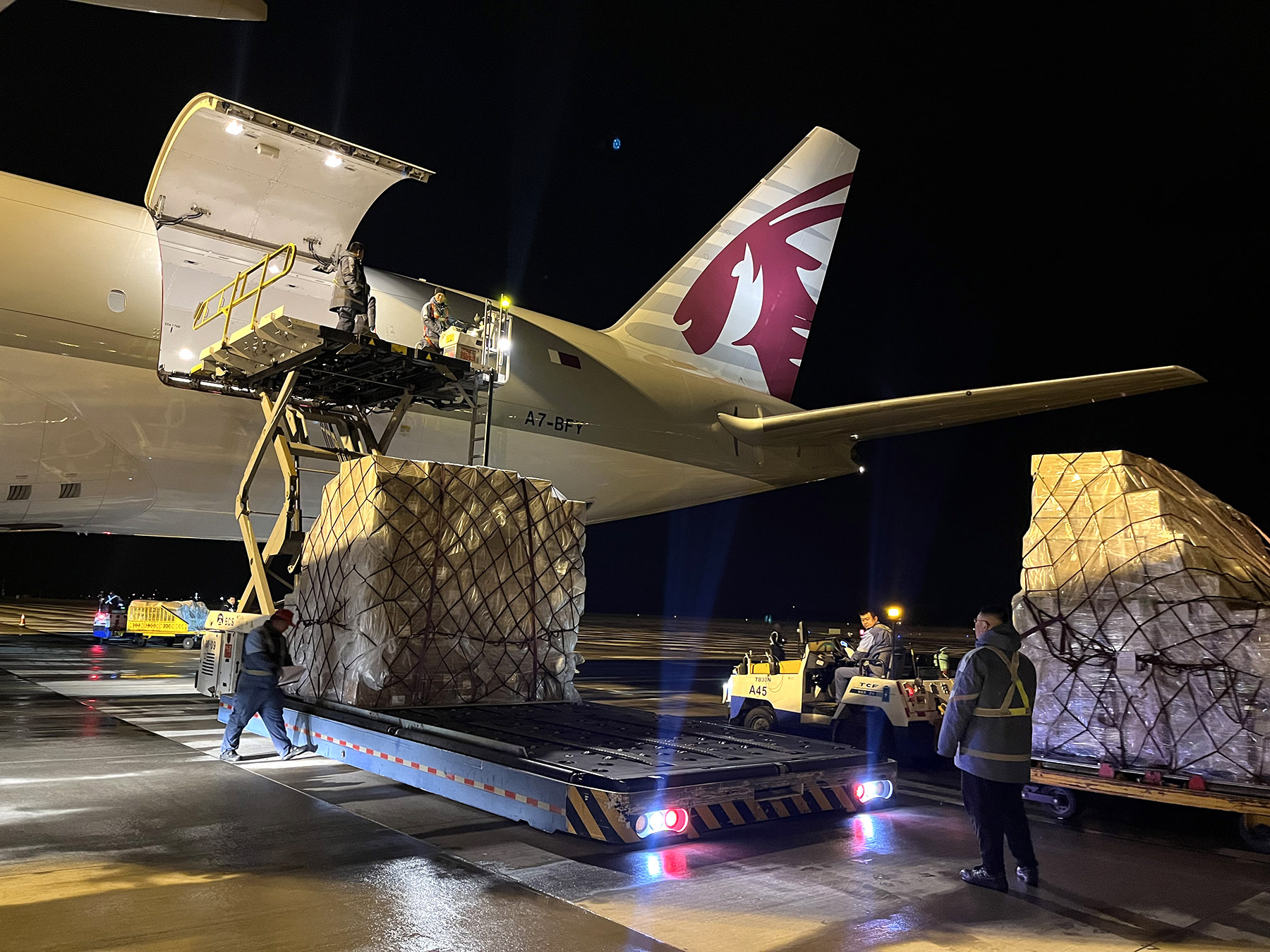
Qatar Airways Cargo, a unit of the national airline of Qatar, said demand from China has grown steadily, led by the rapid rise of cross-border e-commerce, and the carrier sees this growth as a long-term trajectory given China's manufacturing depth and export capacity.
China's cargo transport demand for electronic products such as smartphones, as well as aircraft parts, has continued to gain momentum. In particular, Shenzhen, Guangdong province, is a major center for electronic products and innovation, with corresponding high demand for freight transport, the carrier said.
The Doha-based carrier said its current frequency is designed to match the intensity of this demand. Its global network and infrastructure are aligned with market dynamics, and the firm will continue to invest to capture the demand.
READ MORE: New air cargo route slashes cost of logistics
"China continues to be a key engine of global trade, particularly in sectors aligned with air cargo. We are not just watching that growth, we are aligned with it, operationally and strategically. Our setup is built to support the pace of this market and to stay ahead of its next moves," said Mark Drusch, chief cargo officer of Qatar Airways Cargo.
Chinese e-commerce platforms such as Alibaba Group's platforms, Shein and PDD Holdings' Temu are reshaping global flows, and the carrier is moving significant volumes across that segment. In parallel, it has seen sharp demand for highly specialized logistics, particularly in technology and aerospace, which prompted the company to launch two dedicated products for the sectors.
Last year, Qatar Airways Cargo carried 46,000 metric tons of inbound cargo and 145,600 tons of outbound cargo from the Chinese mainland, with weekly volumes averaging 886 tons and 2,800 tons, respectively, and this is complemented by strong flows through the special administrative regions of Hong Kong and Macao.
The carrier said it has a diverse customer base in China, including e-commerce industry players, technology product exporters, and clients in the pharmaceutical and aerospace sectors, and it is seeing growing demand from companies operating in high-stakes and high-growth environments.
"We deploy capacity where the market calls for it. Our network already covers the Chinese mainland's key industrial hubs and is reinforced by strong operations in Hong Kong and Macao. As volumes evolve, especially in sectors like e-commerce, we are ready to add capacity with agility," Drusch said.
In addition, the carrier further strengthened its partnership late last year with Alibaba Group's logistics arm Cainiao Group to further enhance its ability to serve complex and fast-moving markets, like the transport of e-commerce products. Since then, the two sides have streamlined flows and reduced transit times across key regions such as Europe, the Middle East and Africa.
The United Arab Emirates' Etihad Cargo, a unit of Etihad Airways, has also expanded its capacity to meet growing demand in China. The carrier has increased its total flights to and from China from 11 weekly flights last year to a planned total of 18 this year.
ALSO READ: Delivery boost ensures Chinese goods reach global markets
To satisfy growing market demand, Etihad Cargo has added three additional weekly freighter flights between Abu Dhabi and Shenzhen.
Meanwhile, the International Air Transport Association recently released data for global air cargo markets in March. Total demand, measured in cargo ton-kilometers, grew by 4.4 percent year-on-year, a historic peak for March. Jet fuel prices dropped 17.3 percent year-on-year, marking nine straight months of declines on a yearly basis, IATA said.
"March cargo volumes were strong. It is possible that this is partly a front-loading of demand as some businesses tried to beat the well-telegraphed April 2 tariff announcement by the United States," said Willie Walsh, IATA's director general.
"Within the temporary pause on implementation, we hope that political leaders will be able to shift trade tensions to reliable agreements that can restore confidence in global supply chains," Walsh said.
Contact the writer at zhuwenqian@chinadaily.com.cn


